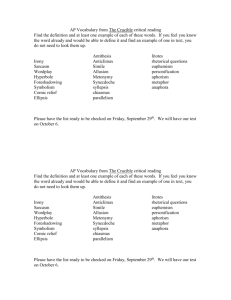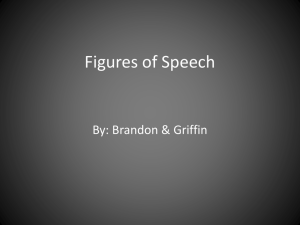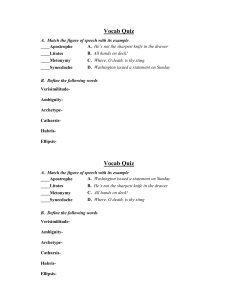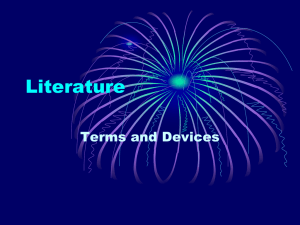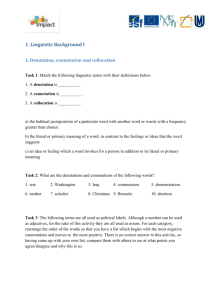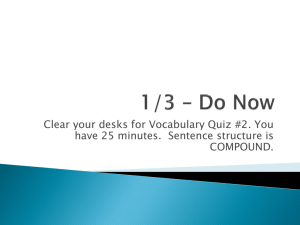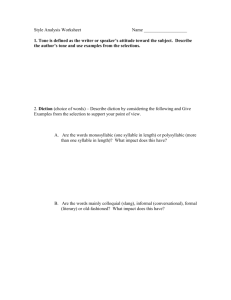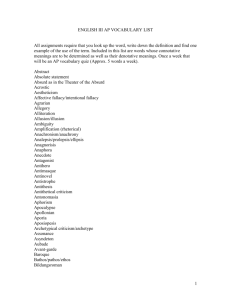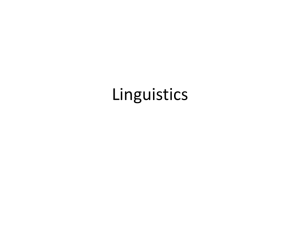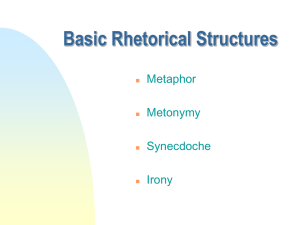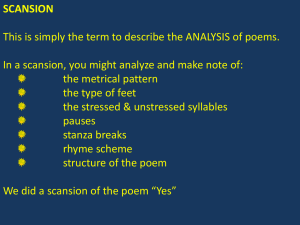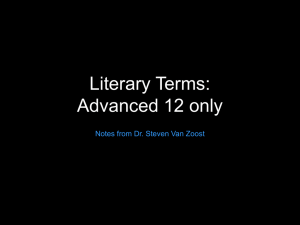Terms List Unit 2 Definitions Prose The major division of writing
advertisement
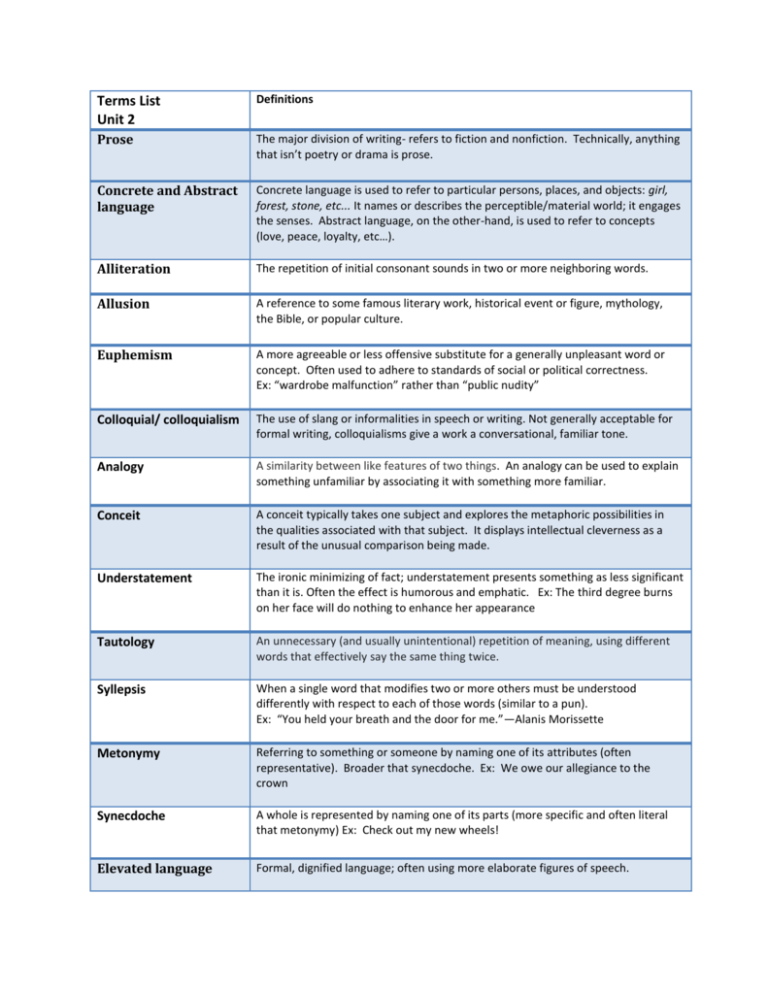
Terms List Unit 2 Definitions Prose The major division of writing- refers to fiction and nonfiction. Technically, anything that isn’t poetry or drama is prose. Concrete and Abstract language Concrete language is used to refer to particular persons, places, and objects: girl, forest, stone, etc... It names or describes the perceptible/material world; it engages the senses. Abstract language, on the other-hand, is used to refer to concepts (love, peace, loyalty, etc…). Alliteration The repetition of initial consonant sounds in two or more neighboring words. Allusion A reference to some famous literary work, historical event or figure, mythology, the Bible, or popular culture. Euphemism A more agreeable or less offensive substitute for a generally unpleasant word or concept. Often used to adhere to standards of social or political correctness. Ex: “wardrobe malfunction” rather than “public nudity” Colloquial/ colloquialism The use of slang or informalities in speech or writing. Not generally acceptable for formal writing, colloquialisms give a work a conversational, familiar tone. Analogy A similarity between like features of two things. An analogy can be used to explain something unfamiliar by associating it with something more familiar. Conceit A conceit typically takes one subject and explores the metaphoric possibilities in the qualities associated with that subject. It displays intellectual cleverness as a result of the unusual comparison being made. Understatement The ironic minimizing of fact; understatement presents something as less significant than it is. Often the effect is humorous and emphatic. Ex: The third degree burns on her face will do nothing to enhance her appearance Tautology An unnecessary (and usually unintentional) repetition of meaning, using different words that effectively say the same thing twice. Syllepsis When a single word that modifies two or more others must be understood differently with respect to each of those words (similar to a pun). Ex: “You held your breath and the door for me.”—Alanis Morissette Metonymy Referring to something or someone by naming one of its attributes (often representative). Broader that synecdoche. Ex: We owe our allegiance to the crown Synecdoche A whole is represented by naming one of its parts (more specific and often literal that metonymy) Ex: Check out my new wheels! Elevated language Formal, dignified language; often using more elaborate figures of speech. Pedantic Narrowly, and often ostentatiously (pretentious or showy) learned; overly concerned with details. Didactic intended for instruction; instructive Commentary a series of comments, explanations, or annotations Syntax Periodic sentence- A long and frequently involved sentence, marked by suspended syntax, in which the sense is not completed until the final word--usually with an emphatic climax. Ex: "And though I have the gift of prophecy, and understand all mysteries, and all knowledge; and though I have all faith, so that I could remove mountains, and have not charity, I am nothing." (The King James Bible, I Corinthians 13) Cumulative sentence- An independent clause followed by a series of subordinate constructions (phrases or clauses) that gather details about a person, place, event, or idea. Ex: "I write this at a wide desk in a pine shed as I always do these recent years, in this life I pray will last, while the summer sun closes the sky to Orion and to all the other winter stars over my roof." (Annie Dillard, An American Childhood, 1987) Assumptions Implicit- an assumption that is understood, though not directly expressed Explicit- an assumption based on something that is fully and clearly expressed; leaving nothing implied Objective The author tries to present information fairly and without bias Subjective The author stresses personal responses and interpretation Voice Active - The subject performs the action. Ex: The dog bit the boy. Passive- The subject receives the action expressed in the verb. Ex: The boy was bitten by the dog.
